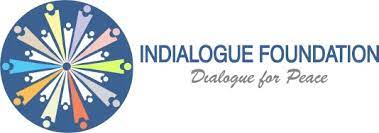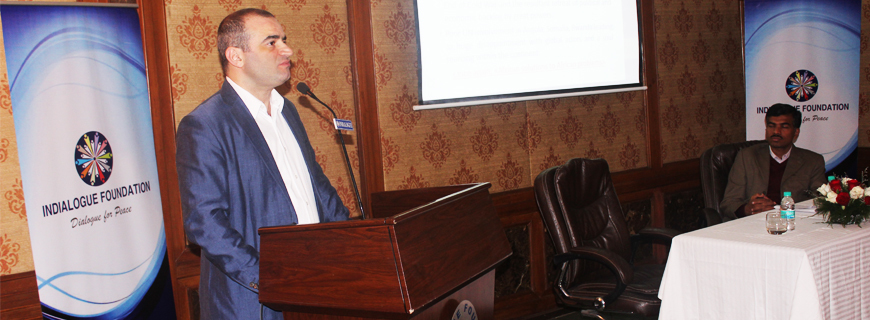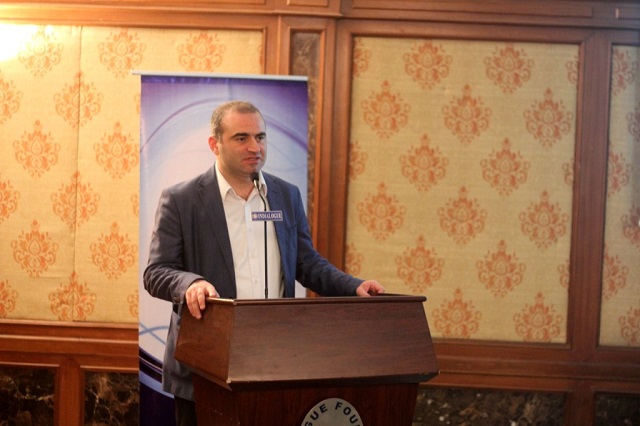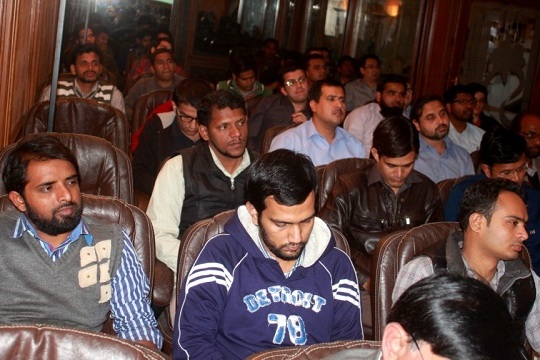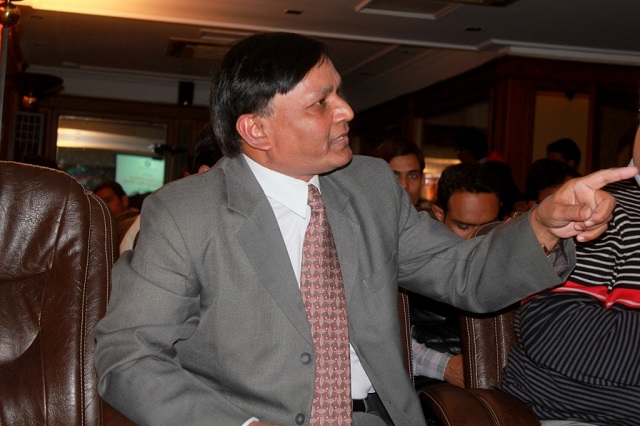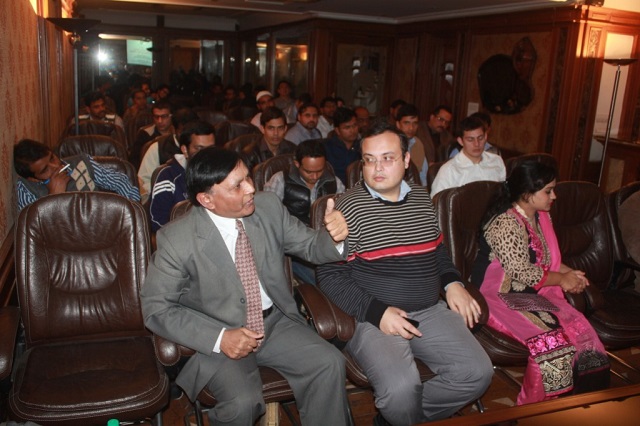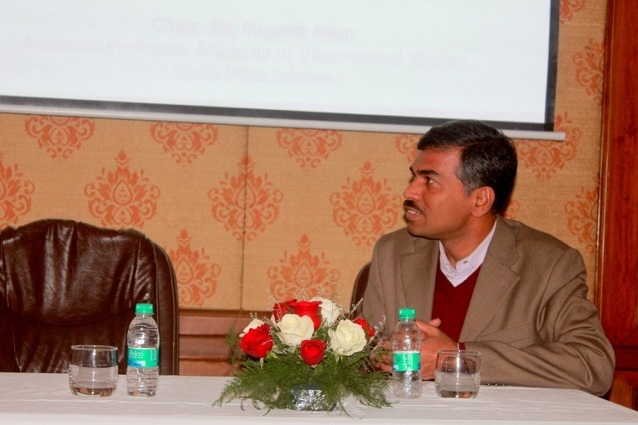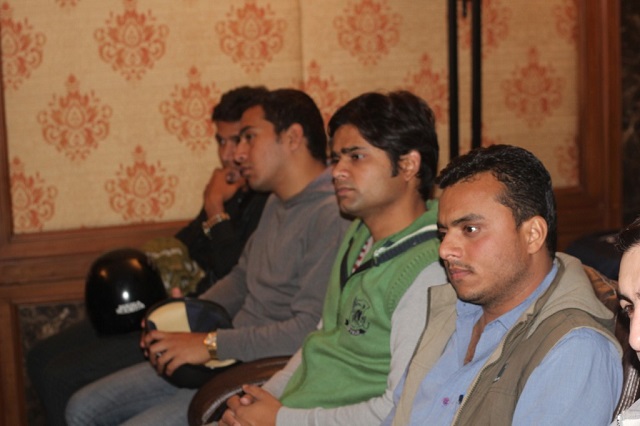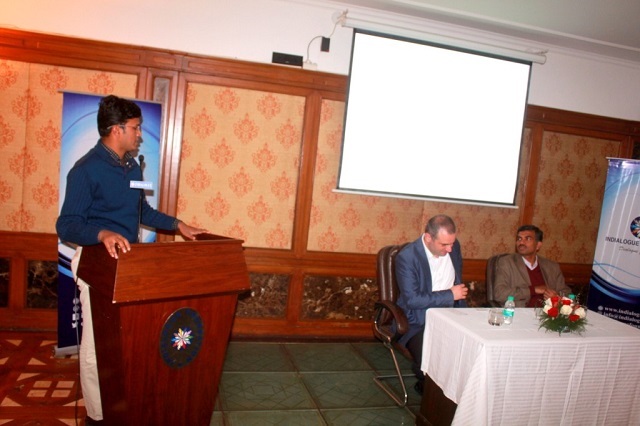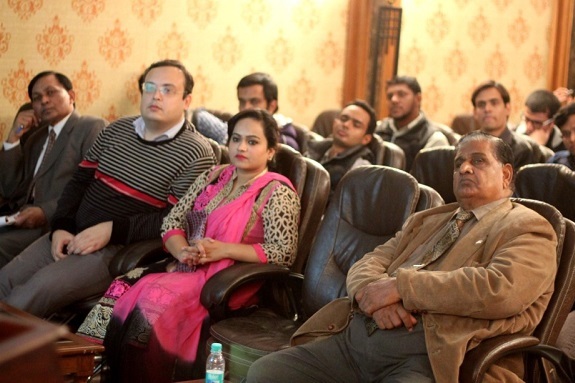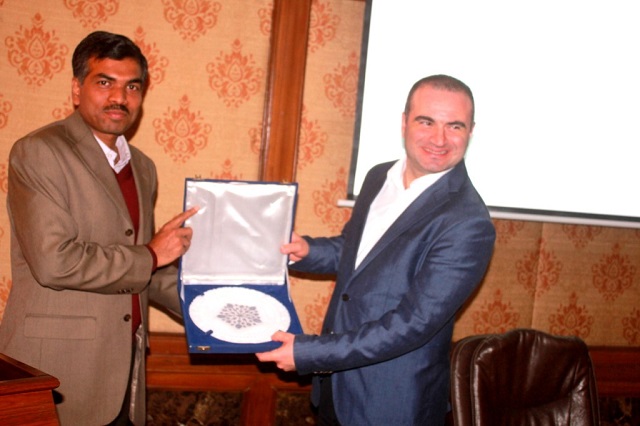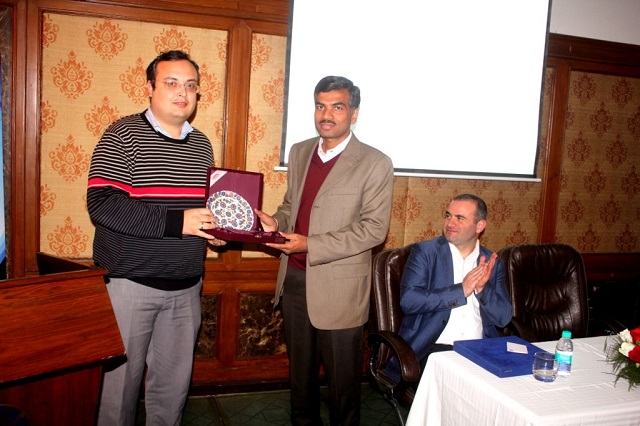NEW DELHI, 8-12-2014: Indialogue Foundation organized a Guest Scholar Lecture on “African Union and Peace Building”. Lecture was delivered by Mr. Ibrahim Aytac Anli the Secretary General of Abant Platform which is a wing organization of the Journalists and Writers Foundation. Foundation is a highly influential non-governmental and non-political organization in Turkey. Mr. Anli is pursuing PhD on African Union. He is an peace and interfaith activist and worked at the Rumi Forum in Washington DC and at the Hebrew University of Jerusalem. The Lecture was chaired by Dr. Mujib Alam, Assistant Professor at MMAJ Academy of International Studies, Jamia Millia Islamia. More than 60 scholars and students participated at this interesting lecture gathering.
The African Union (AU) is a union consisting of 54 African states. The only African state that is not a member is Morocco. The AU was established on 26 May 2001 in Addis Ababa and launched on 9 July 2002 in South Africa to replace the Organisation of African Unity (OAU). The most important decisions of the AU are made by the Assembly of the African Union, a semi-annual meeting of the heads of state and government of its member states. The AU’s secretariat, the African Union Commission, is based in Addis Ababa, Ethiopia.
One of the objectives of the AU is to “promote peace, security, and stability on the continent”. Among its principles is ‘Peaceful resolution of conflicts among Member States of the Union through such appropriate means as may be decided upon by the Assembly’. The primary body charged with implementing these objectives and principles is the Peace and Security Council. The PSC has the power, among other things, to authorise peace support missions, to impose sanctions in case of unconstitutional change of government, and to “take initiatives and action it deems appropriate” in response to potential or actual conflicts. The Peace and Security Council is a decision-making body in its own right, and its decisions are binding on member states.
The guest scholar touched upon subjects as Politics of Peace in Africa, Sovereignty and Cooperation, Pan-Africanism in Post-Colonial Era, Turkey’s Relations with Africa, Casablanca and Monrovia Group, etc. The lecture continued with vibrant questions raised as Peace Building in Somalia, Combating Terrorism, Arab Spring, AU’s approach towards political shift in Egypt, Role of UN in AU, US and EU relations with AU, etc.
